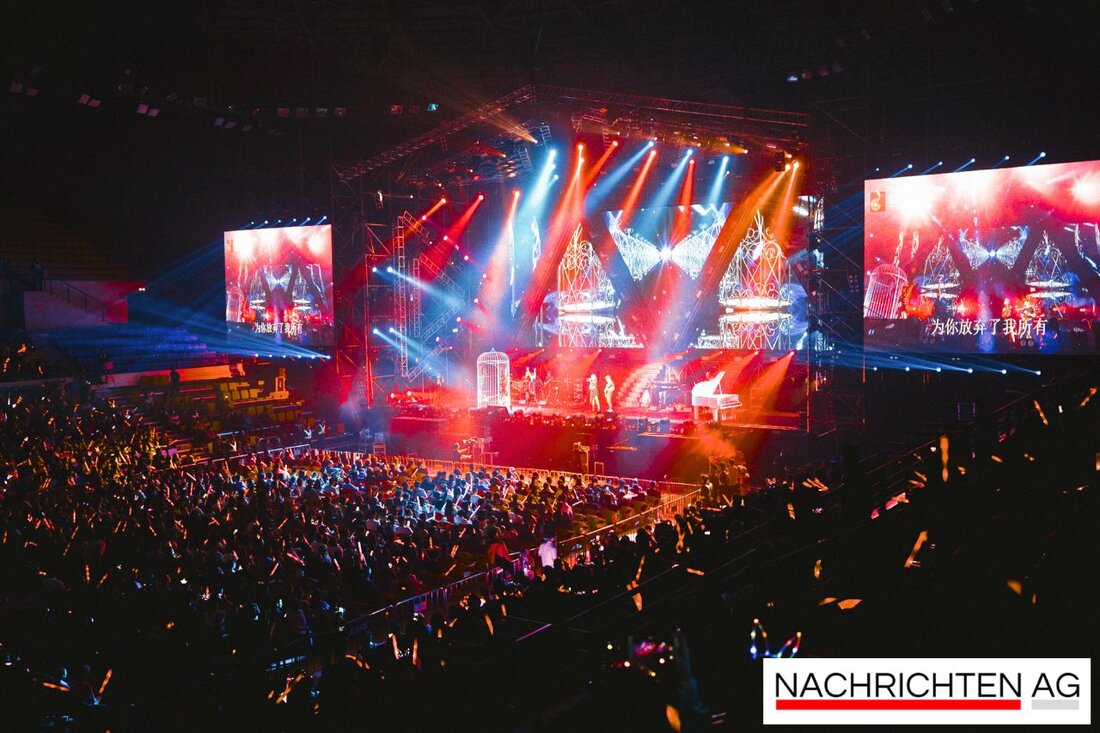Rio Reiser: Het legendarische optreden in Oost-Berlijn toen de Muur viel!
Ervaar het historische concert van Rio Reiser uit 1988 in Oost-Berlijn, dat politiek verzet en muzikale vrijheid verenigde.

Rio Reiser: Het legendarische optreden in Oost-Berlijn toen de Muur viel!
Op 1 oktober 1988 beleefde de rockscene in de DDR een onvergetelijke avond toen de legendarische Rio Reiser optrad in de uitverkochte Werner-Seelenbinder-Halle in Oost-Berlijn. Reiser, die in 1986 de hitlijsten veroverde met zijn band ‘Ton Steine Scherben’ en zijn volkslied ‘König von Deutschland’, kwam uit Kreuzberg, West-Berlijn, en was een symbool van verzet en verandering in een tijd waarin de politieke lethargie in de DDR voelbaar was. Dit meldt rbb online.
De sfeer in de zaal was elektrisch en fans van de band zongen met luide stem mee met zowel de oude als de nieuwe nummers. Bijzonder emotioneel was het nummer ‘The dream is over’, waarbij de tekst het verlangen naar een andere werkelijkheid weerspiegelde en de aanwezigen confronteerde met de vraag: ‘Is er een land op aarde waar de droom werkelijkheid is?’ De feestelijke reactie van het publiek: “Het is niet dit land!”, illustreerde de rommelige situatie in de DDR en de honger naar vrijheid en verandering. De voorstelling was bijna een politiek manifest dat de gebeurtenissen van die tijd onder woorden bracht archief.org gedocumenteerd.
Een optreden in een politiek barre omgeving
Rio Reiser kreeg destijds op uitnodiging van de FDJ de kans om in Oost-Berlijn te spelen. Het concert vond plaats binnen het politieke kader van de DDR, en sommige van zijn politieke liedjes, zoals ‘No Power for Nobody’, werden niet gespeeld om misverstanden met de machthebbers te voorkomen. Het publiek was echter niet onder de indruk en zwaaide tijdens de voorstelling met anarchovlaggen, wat een sterk teken was van het verlangen naar verandering. Reiser speelde ook zijn hits “Let us be a Miracle”, “Stowaway” en “Junimond” en liet de harten van zijn luisteraars sneller kloppen. Het spektakel werd op 2 oktober herhaald met een vrijwel identiek programma en reacties van het publiek, wat de grote behoefte aan dergelijke culturele evenementen in de DDR aantoonde.
De late jaren tachtig werden gekenmerkt door verveling en stagnatie in de DDR, maar de rockscene bloeide nog steeds. Volgens het Federaal Agentschap voor Burgereducatie was rockmuziek een belangrijk element van de jeugdcultuur dat zowel door de machthebbers als door de bevolking werd erkend. De overstap van Walter Ulbricht naar Erich Honecker leidde in de jaren zeventig tot de promotie van rockmuziek, waarbij de SED werken creëerde die bedoeld waren om jongeren kennis te laten maken met de socialistische utopie. Toch werd de industrie nauwlettend in de gaten gehouden en moesten veel muzikanten toestemming krijgen om in het openbaar op te treden om te voorkomen dat ze als een bedreiging voor de socialistische orde zouden worden gezien. bpb.de wordt geëxecuteerd.
Nasleep en Ostalgie
De nawerkingen van Reiser's optreden zijn nog steeds sterk voelbaar. De zogenaamde ‘Ostalgie’, een nostalgisch gevoel naar de DDR, heeft zich sinds de val van het communisme ontwikkeld tot een interessant fenomeen, dat zich niet alleen uit in de vorm van evenementen en feesten, maar ook via markten en pretparken. Deze herinneringen worden aangevuld met economisch succes: de Bertelsmann Group behaalde enorme verkopen met de voormalige oosterse pop- en rockproducties en liet daarmee zien hoe tijdloos en sterk de boodschappen van deze muziek zijn.
Over het geheel genomen kan worden gezegd dat het optreden van Rio Reiser in Oost-Berlijn veel meer was dan alleen een concert. Het was een belangrijke culturele gebeurtenis op het juiste moment en bracht veel gepolitiseerde gedachten en hoop op het podium. De herinneringen aan deze tijd en Reiser zelf leven voort in de muziek en in de harten van veel mensen die streefden naar vrijheid en verandering.

 Suche
Suche
 Mein Konto
Mein Konto